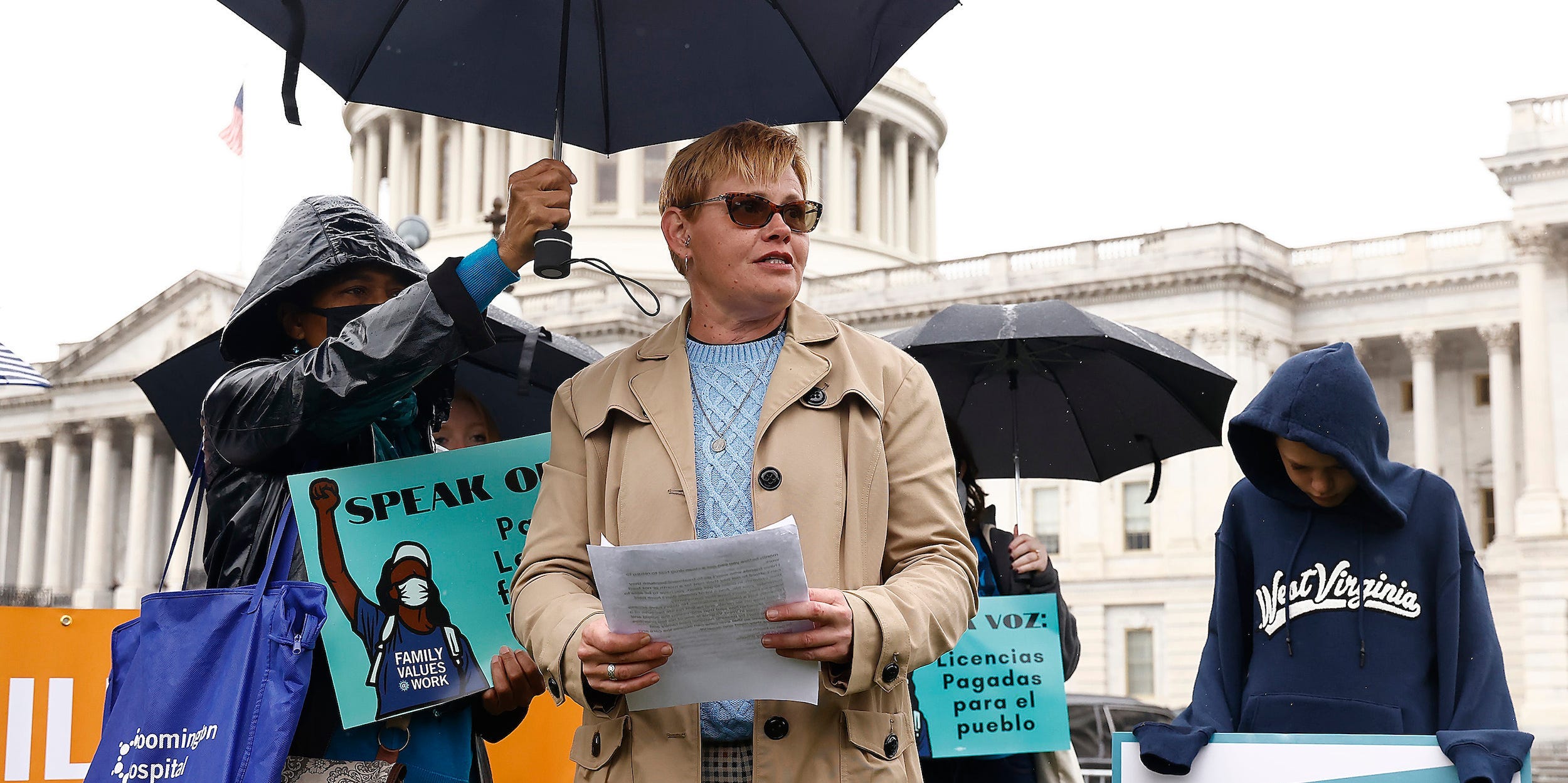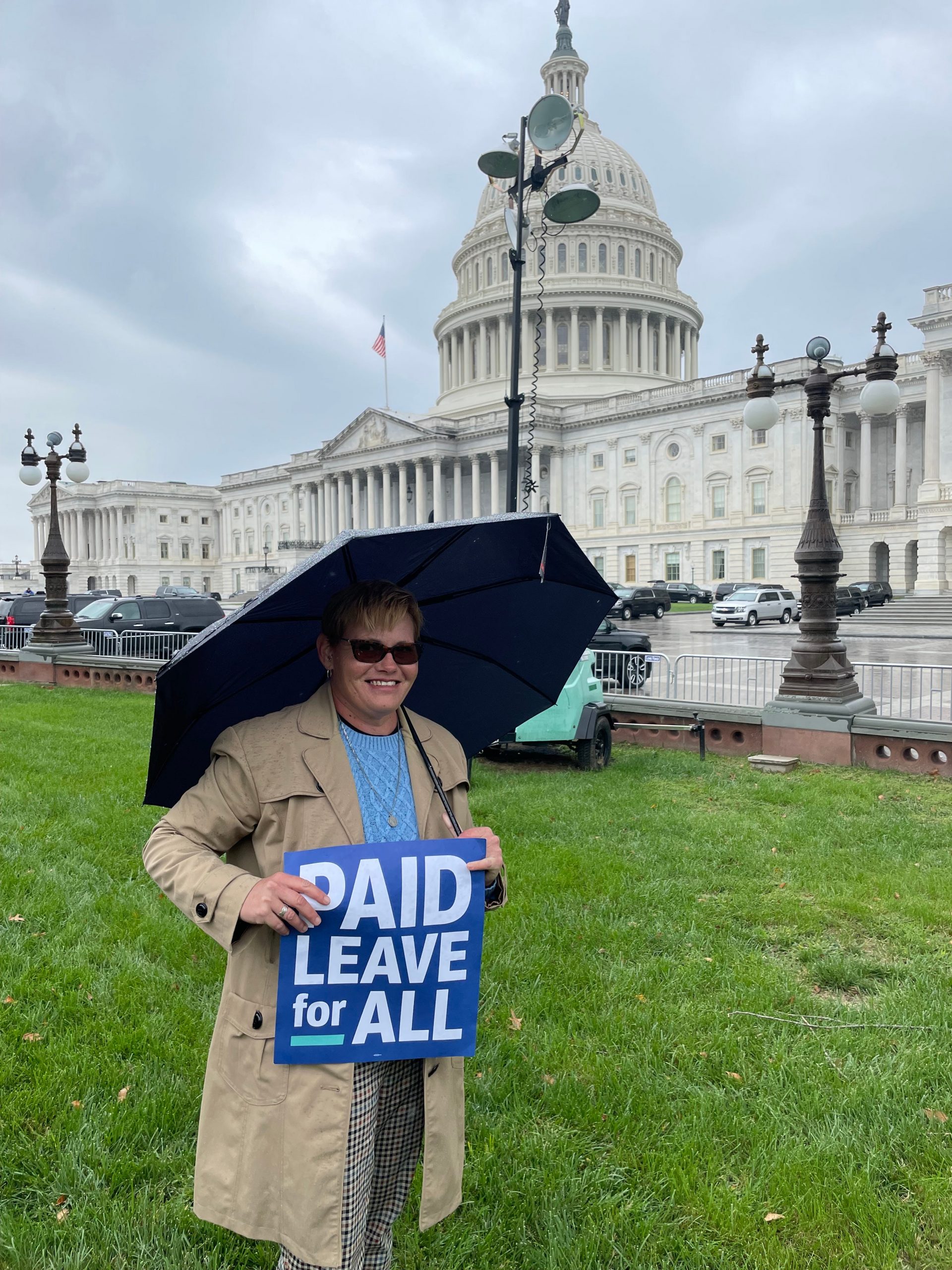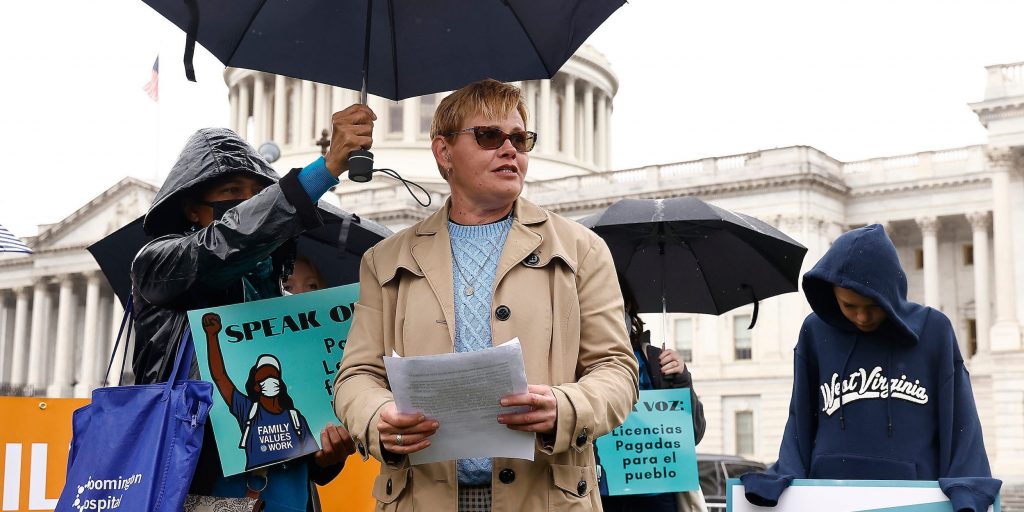
Paul Morigi/Getty Images for PL+US
- Taking paid leave helped Khrista Messinger get sober. The program "did save my life," she said.
- Democrats aim to pass a paid leave program in their social spending plan, but Messinger's representative, Sen. Joe Manchin, opposes it.
- Messinger is urging Manchin to reconsider. The program would save lives and help the economy, she said.
When Khrista Messinger asked her human resources department for paid leave, she was "scared to death."
In September 2020, Messinger was working as a human officer with the Charleston Police Department in West Virginia, investigating animal abuse, helping homeless people with their pets, and handling similar matters. In her mid-40s, she had been struggling with addiction for years and had finally saved up enough vacation and sick days to pursue rehabilitation. Asking to take time off was "one of the hardest conversations I've had in my life," but she said getting paid leave was a lifeline.
"I just was at the end and it did save my life," Messinger told Insider. "If I wouldn't have had that time off, I never would have went to treatment and I don't believe that I'd be here today."
Getting that support convinced Messinger that she wants to retire in Charleston. The police force "did give me a new life," she said.
But President Joe Biden's plans to expand that benefit nationwide are at risk. He cut the program from his Build Back Better plan in late October amid pushback from centrists including Sen. Joe Manchin of West Virginia. House Democrats added paid leave to their version of the plan on Wednesday, but Manchin still isn't convinced it should be included.
Messinger said that the pushback from the senator who represents her state "breaks my heart."
"Sen. Joe Manchin has said that addressing the opioid addiction crisis in West Virginia is one of his top priorities," she continued. "You can open a million treatment centers but if working people don't have access to it, what's the plan to help save West Virginia addicts?"
'You don't realize how many people could benefit from this'
The issue is a personal one for Messinger. She and a group of advocates called on centrist Senate Democrats to pass a federal paid leave program at the US Capitol on Tuesday. Messinger said it was her first time sharing her story of addiction and how paid leave saved her.
Manchin has been one of the biggest players in negotiations over the Build Back Better plan and has repeatedly delayed its passage. Yet it's clear West Virginia has plenty to gain from paid leave, Messinger said.
"It's going to aid the economy. More people are going to go to work. More people are going to do a better job. So I really don't understand why [Manchin] is not considering this," she added.

Ben Winck/Insider
The US is the only advanced economy in the world without a federal paid leave program. Yet a May poll commissioned by advocacy group Paid Leave for All Action found 84% of likely voters in eight battleground states supported paid leave programs.
Sixty-nine percent of respondents, including 55% of Republicans, backed a federal paid leave program even if they had to pay higher taxes for it.
"People look at the cost of family paid leave, but they don't look at the results," Messinger said. "In the grand scheme of it all, what are our lives worth?"
Messinger said beneficiaries of a paid leave program would go well beyond new parents and sick workers.
"You don't realize how many people could benefit from this," she said. "It's not just about childbirth. It's not just about being sick and taking care of your family. It's also about taking care of yourself."
The economic case for it makes sense, too, Messinger added. And there is something of a recent precedent.
The UK rolled out a worker furlough program in March 2020 that paid laid-off workers' wages up to $3,088 a month. At its peak, the program was paying nearly 9 million workers as they stayed home during lockdown. While imperfect, the policy was a "great success" that staved off "catastrophic rises in unemployment," think tank Resolution Foundation said in September.
While the UK furlough scheme wasn't identical to the paid-leave proposals making their way through Congress - since it was a temporary response to the COVID-19 pandemic - Messinger said there are still valuable lessons to learn from it.
It shows that allowing people a few paid weeks off can cut down on costly worker turnover for businesses, she argued. By denying the US a paid leave program, lawmakers are prioritizing the economic status quo "above people's lives," she added.
"I chose to tell my story in hopes that Washington would listen," she said. "Sen. Manchin is aware of this issue but sits undecided. This would give the working poor access to treatment!"

